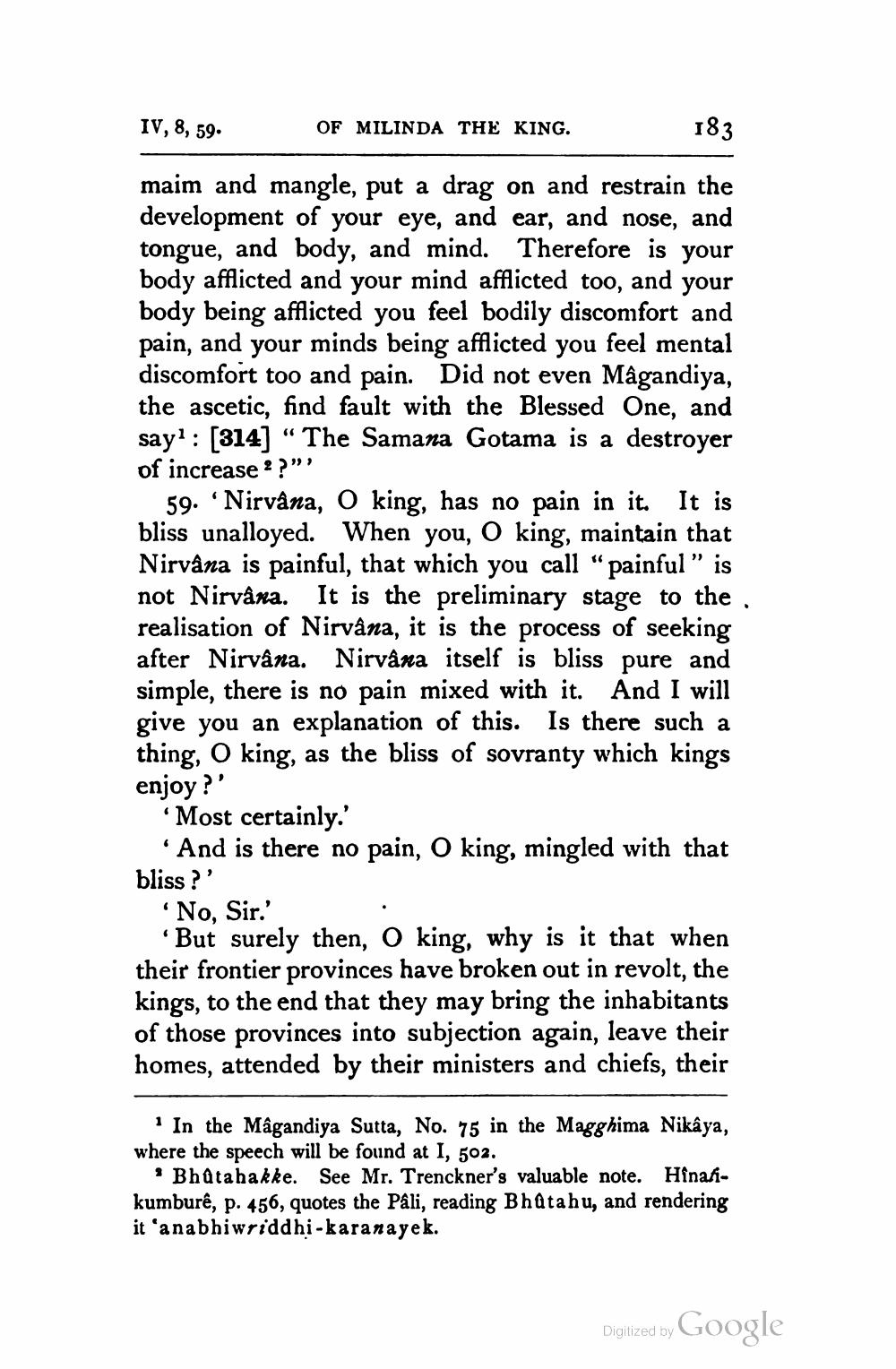________________
183
maim and mangle, put a drag on and restrain the development of your eye, and ear, and nose, and tongue, and body, and mind. Therefore is your body afflicted and your mind afflicted too, and your body being afflicted you feel bodily discomfort and pain, and your minds being afflicted you feel mental discomfort too and pain. Did not even Mâgandiya, the ascetic, find fault with the Blessed One, and say1: [314] "The Samana Gotama is a destroyer of increase??""
IV, 8, 59.
OF MILINDA THE KING.
59. 'Nirvana, O king, has no pain in it. It is bliss unalloyed. When you, O king, maintain that Nirvana is painful, that which you call "painful" is not Nirvana. It is the preliminary stage to the. realisation of Nirvâna, it is the process of seeking after Nirvana. Nirvâna itself is bliss pure and simple, there is no pain mixed with it. And I will give you an explanation of this. Is there such a thing, O king, as the bliss of sovranty which kings enjoy?'
'Most certainly.'
'And is there no pain, O king, mingled with that bliss?'
'No, Sir.'
'But surely then, O king, why is it that when their frontier provinces have broken out in revolt, the kings, to the end that they may bring the inhabitants of those provinces into subjection again, leave their homes, attended by their ministers and chiefs, their
In the Mâgandiya Sutta, No. 75 in the Magghima Nikâya, where the speech will be found at I, 502.
Bhutahakke. See Mr. Trenckner's valuable note. HinaЛkumburê, p. 456, quotes the Pâli, reading Bhûtahu, and rendering it 'anabhiwriddhi-karanayek.
Digitized by
Google




